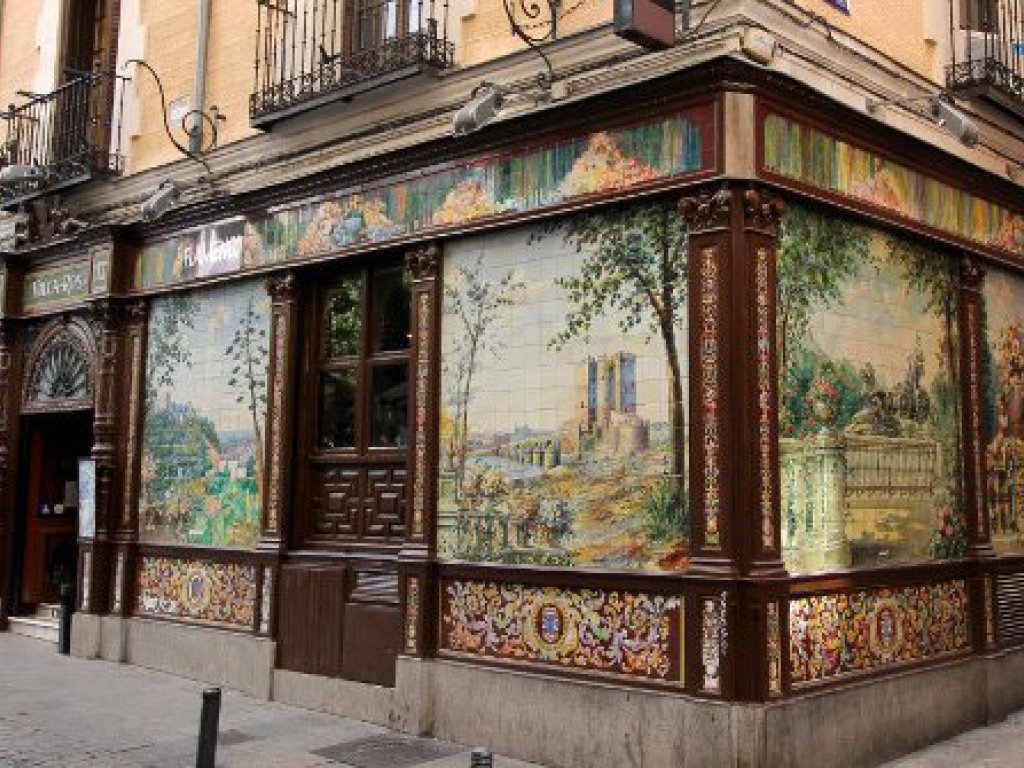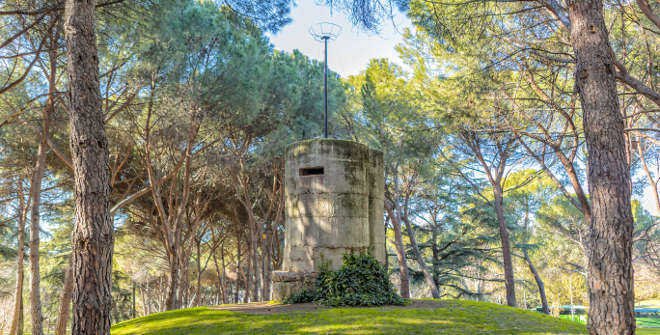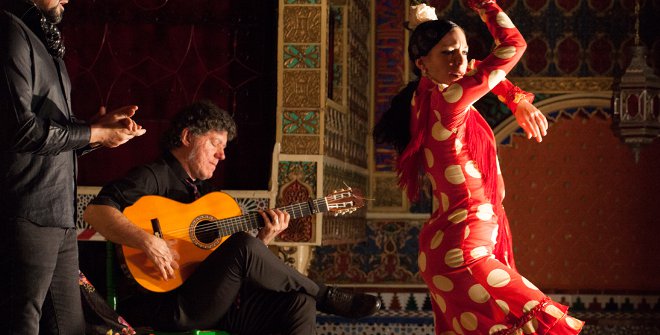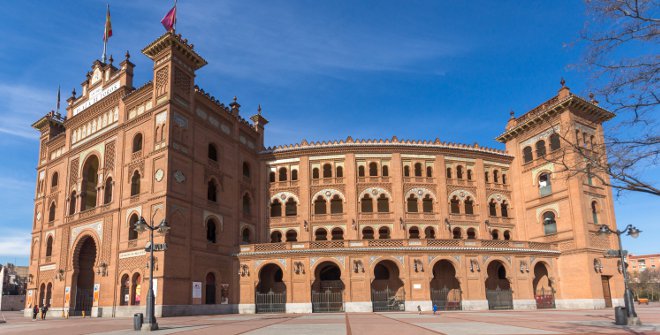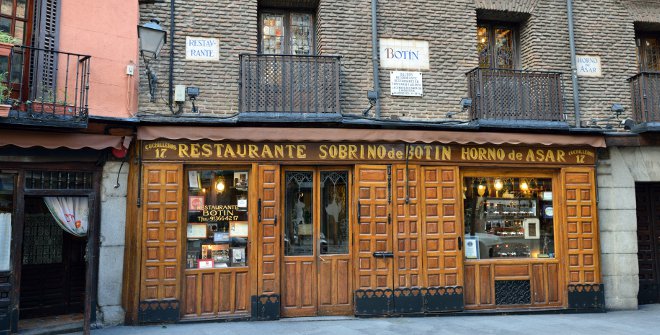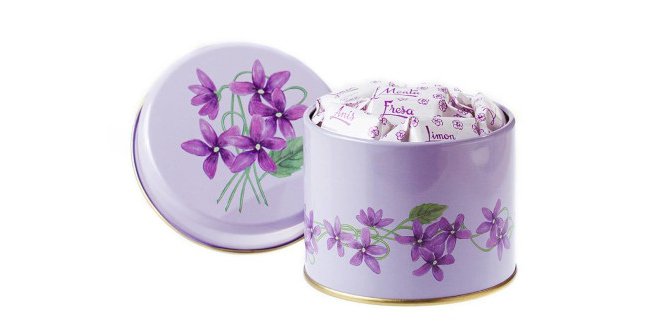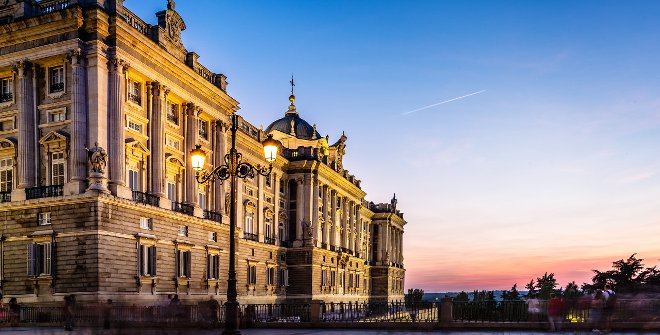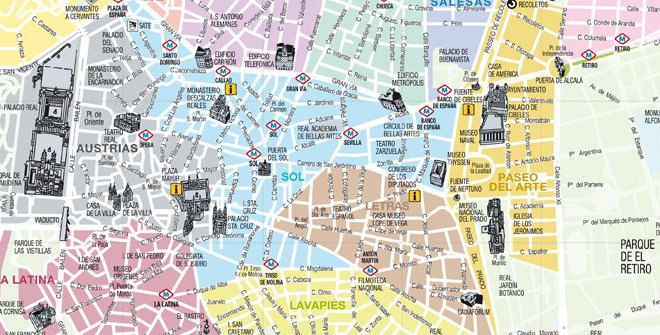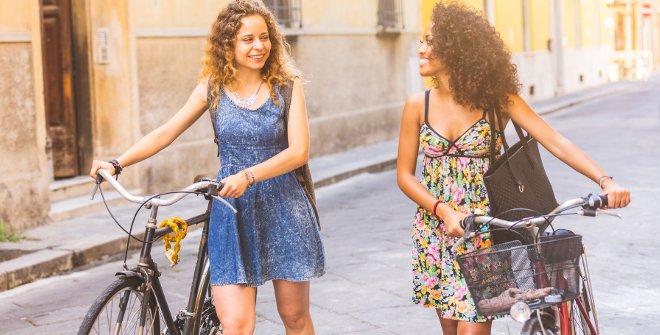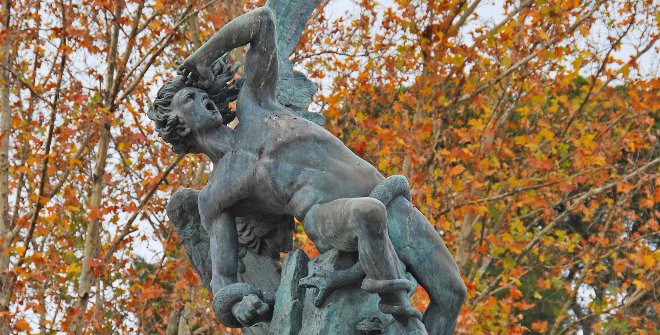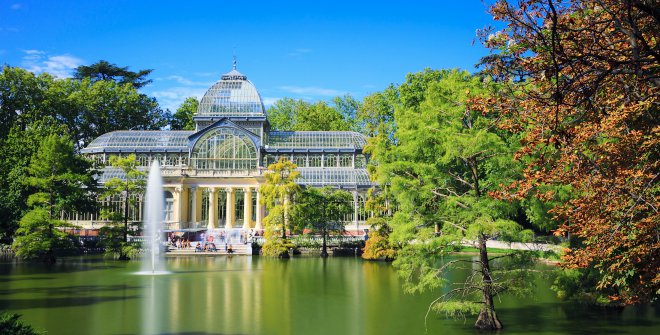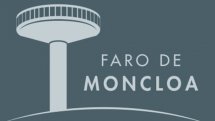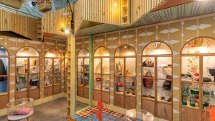Things you can only do in Madrid
There are certain things you can only enjoy in Madrid. Cultural, art, festive, but we also bring you some sports, culinary experiences, flamenco and history, because in Madrid you can do things you cannot even dream of in other European cities (nor worldwide). Here we show you just a few of them, but there are many more:
Have a cup of coffee at the same place where García Lorca and Orson Welles had theirs
It is one of the most traditional literary cafés in all of Madrid, Café Gijon, whose marble tables have welcomed, since it was opened in Paseo de Recoletos, some of the greatest novelists and poets of the last century from Benito Pérez Galdós, Ramón y Cajal and Valle-Inclán to García Lorca, Agustín de Foxá, Fernando Fernán Gómez and Francisco Umbral, without forgetting international figures like Truman Capote and Orson Welles. It is also worth mentioning the bar at the Westin Palace where personalities like Hemingway, Lorca, Dalí or Buñuel used to meet.
Have lunch (or dinner) in the world’s oldest restaurant
Sobrino de Botín restaurant boasts (and it has been confirmed) being the world’s oldest culinary establishment. It is 294 years old and has recipes that will leave you licking your fingers.
Located close to Plaza Mayor, the restaurant’s fame is well deserved in part thanks to its long history, but more so because of its exquisite roasts, especially the cochinillo (roast suckling pig), but lamb or clams also deserve an “ole”. Some of the greatest names of the Spanish (and international) names have eaten here.
Have a peak at Real Madrid’s European Cups
Sign up to the tour of the Santiago Bernabéu Stadium for an up-close look at Real Madrid’s dazzling 15 European Cup / Champions League trophies.
The tour takes in all the trophies won by the Spanish team—named Best Club of the 20th Century—including their fifteenth Champions League trophy, which they brought home in June 2024. It also features new areas with audiovisual material dedicated to the most prominent players of the men’s football and basketball teams and of the women’s female football team.
The museum’s top floor, which offers a breath-taking panoramic view of the pitch and the city skyline, boasts a "Madridista Play Area" and pays tribute to the most iconic figures in the club's history.
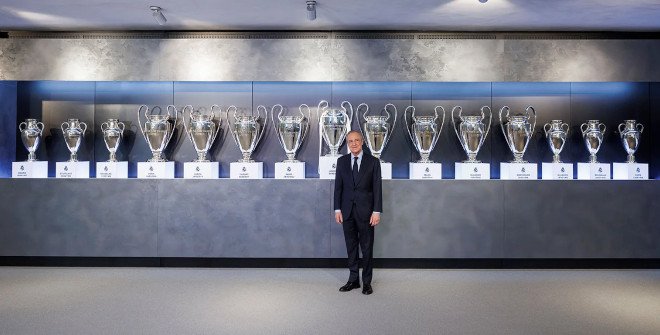
Eat gallinejas and entresijos in Lavapiés or Embajadores
There is no middle grounds. You either love them or hate them. We are talking about the famous entresijos and gallinejas (lamb intestines and offal) cooked in their own fat. They are very tasty dishes and very popular in Madrid. They used to be sold in the streets and in fairs, but today in the Embajadores and Lavapiés district there are several restaurants that serve these special dishes. They are sold by pieces or by servings.
Visit the most important bullring
It may not be the biggest, but it is considered to be the most important bullring worldwide. It was built in the Guindalera neighborhood by the architect José Espelius and decorated by Muñoz Monasterio and can seat almost 24,000 spectators. The bullring Plaza de toros Monumental de Las Ventas has welcomed some of the most important bull fighters and it includes the Museo Taurino (Bullfighting Museum) that is open every day from 10am to 6pm.
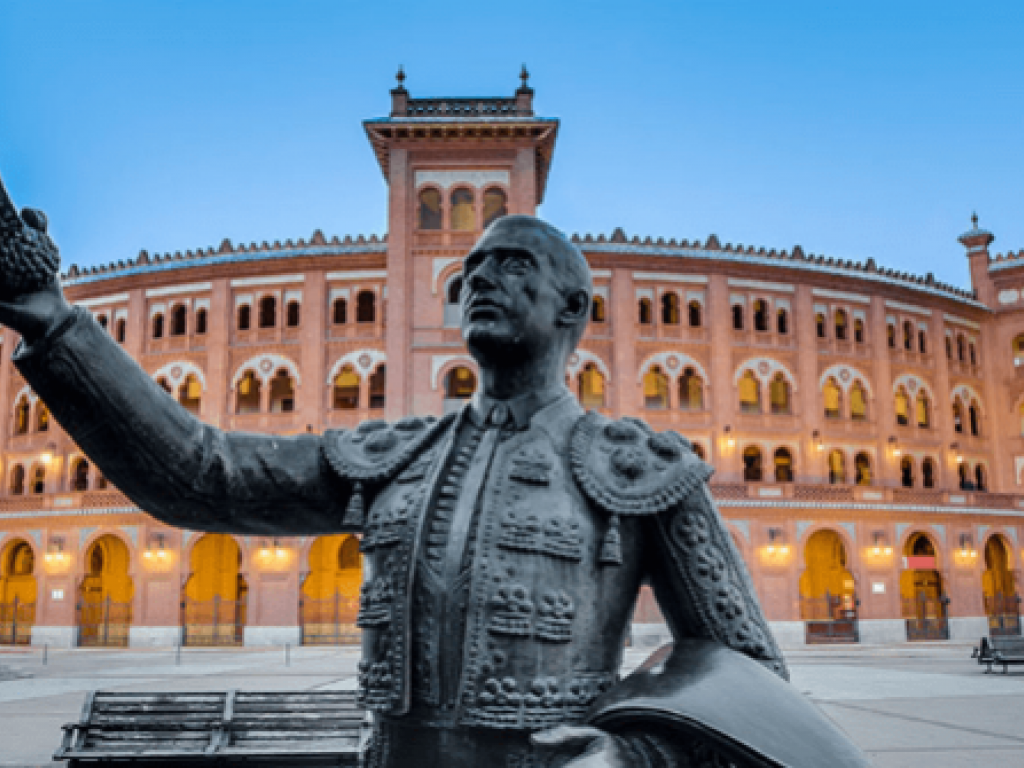
Enjoy a show at the world’s most famous flamenco tablao
The Corral de la Morería was opened in 1956 by Manuel del Rey and it soon became the most famous flameco tablao in the world. The greatest artist performing cante jondo (a vocal style in flamenco) have passed through the stages of this establishment, that also includes a Michelin star restaurant led by David García.
Artists like Pastora Imperio, La Chunga, Manuela Vargas, Antonio Gades, Paco de Lucía and many other flamenco singers, guitarists and dancers have performed in this tablao. It s located very close to the Royal Palace, at the Morería Street
Discover the Civil War bunkers at the Parque del Oeste
The material remains of the biggest tragedy this city has ever lived: the Civil War. Out of the 20 bunkers the city had during the siege, only three still remain and can be seen, impassible, in the iconic Parque del Oeste. Seeing its claustrophobic space really moves you.
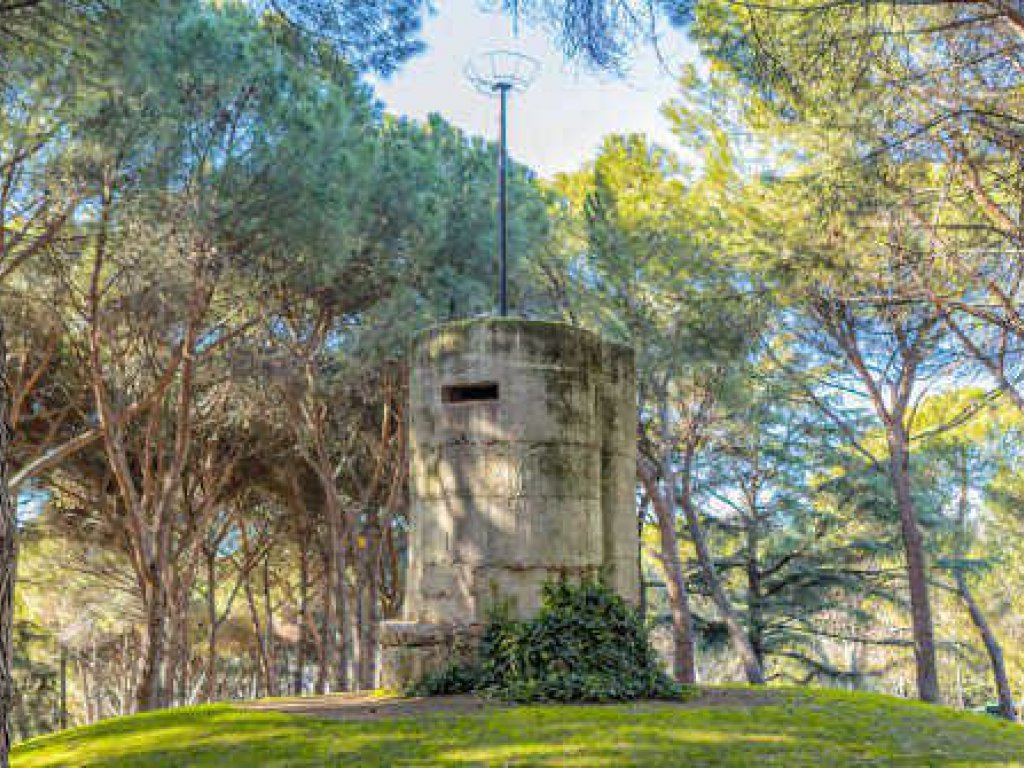
Try the strawberry tree liqueur
The strawberry tree is not just a tree, together with the bear, it is a symbol of Madrid. A delicious liqueur is made with this tree’s red fruits and you can try it or buy it at some of the establishments in Villa and Corte. For a time, its production and sales were forbidden, because the strawberry tree was an endangered species due to the overexploitation of its fruit. Fortunately, this problem has been resolved thanks to the years of protection and replanting.
Have a cup of hot chocolate at San Ginés
This is the most famous chocolate shop in the city and it is located close to Puerta del Sol. Ever since 1894 it has been serving the traditional chocolate con churros, together with soft drinks, coffees and other types of pastry. It is open 24 hours a day, 365 days a year and the success of its chocolate con churros is a result of centuries of tradition.
Stroll around a ghost station
The Metro de Madrid network hides the former Chamberí station converted into the Andén 0 museum, which is made up of the Pacífico Engine Shed and the Former foyer of Pacífico Station. It is a project to better understand the suburban network and Chamberí station, closed since 1966 and designed by Antonio Palacios, where the bright, colourful and luminous finishes can be contemplated as they were.
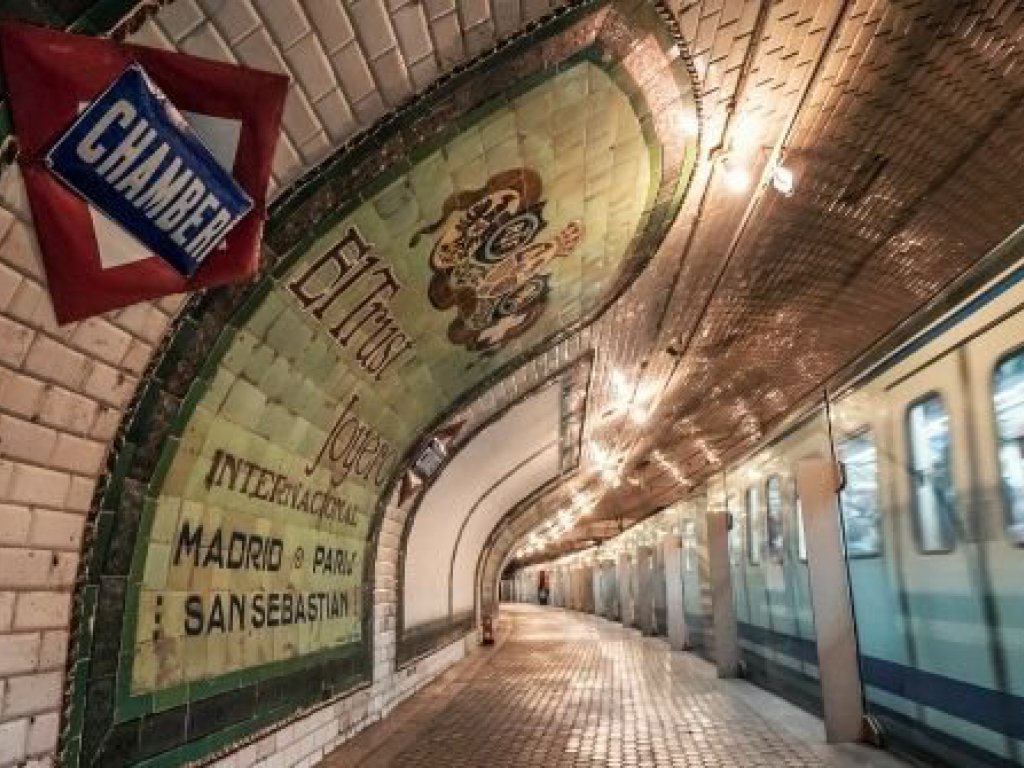
Savour the famous La Violeta sweets
La Violeta family business offers one of the most typical sweets of Madrid. With a façade that is reminiscent of an old sweet shop, its sweets have been famous for many years as it was a typical gift for children on birthdays and at other social events. It is a shop that is frequented by famous people, such as Jacinto Benavente and actors like Luis Merlo, Loles León, Emma Azores and even members of the royal family.
Visit an Egyptian temple without setting foot outside of Spain
Madrid offers you the chance to visit an authentic Egyptian temple without travelling outside Spain at the Temple of Debod. Located close to Plaza de España, it is open to the public and is free of charge.
Go climbing at a huge rock-climbing arena
The city is home to Sharma Climbing Madrid, considered the largest rock-climbing arena in Spain. A huge climbing centre in the district of San Blas that has about 4000 square metres of climbing walls, including walls up to 19 metres high.
Delve into original immersive experiences
Located opposite the Reina Sofia Museum is IKONO, a unique interactive art gallery that includes immersive activities to enhance the senses. The Sweet Space Museum, located in the ABC Serrano shopping centre, is an interactive tasting adventure that will delight those with a sweet tooth, a unique space full of innovative experiences and lots of fun. The Nomad Immersive Museum is definitely worth a visit, merging technology and participatory art to reinvent the sensory experience. The Museum of Happiness offers an immersive experience designed to get your endorphins pumping, and the Madrid Light Museum where visitors can experiment with state-of -the-art visual effects and technological installations.
Relax in Spain's largest luxury city spa
Located on the top floors of the luxurious Four Seasons hotel, next to Puerta del Sol, is the largest luxury city spa in Spain. There are more than 1400 m2 of facilities available to guests and non-guests alike, looking to enjoy a wellness and beauty session.
Travel along the Landscape of Light Paseo del Prado and Buen Retiro
The city of Madrid forms part of the UNESCO World Heritage list, which includes sites with exceptional universal value. The Paseo del Prado and the Buen Retiro are included in the Landscape of the Arts and Sciences category, and the Paseo del Prado is the first of the European, urban tree-lined walkways.
Visit the world’s oldest flamenco house.
The legendary flamenco house, Villa Rosa (now called Tablao Flamenco 1911) , is considered to be the world’s oldest flamenco house. Located in a century old establishment in the Plaza de Santa Ana, it dates back to 1911, and the establishment was turned into the most popular establishment in the 1920s, becoming the flamenco temple in Madrid.
